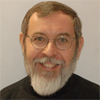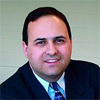- Catholic Social Teaching and Economic Law: An Unresolved Tension, by Thomas E. Woods, Jr. (LewRockwell.com March 22, 2002). Delivered a the 8th Austrian Scholars Conference at the Ludwig von Mises Institute in Auburn, Ala. From the author:
What follows is a discussion of Catholic social thought and the question of the just wage. I have nothing but the most profound respect for the nineteenth- and twentieth-century popes, who led the Church with courage and principle. As for the concept of the just wage, however, the time has come to acknowledge, with the late Scholastics, that the just wage is the market wage. As Fr. James Sadowsky of Fordham University has argued, if a business can "afford" to pay a just wage, market competition for labor will yield one. If it cannot, then it won't. In advocating socially desirable outcomes, it is essential to study how best they can be brought about.
- Morality and Economic Law: Toward a Reconciliation, by Thomas E. Woods, Jr. (LewRockwell.com March 20, 2004) The Lou Church Memorial Lecture in Religion and Economics, Austrian Scholars Conference, Ludwig von Mises Institute, Auburn, Alabama, March 20, 2004. | Audio
- Economic Science and Catholic Social Teaching, by Thomas Storck. (Chronicles Magazine June 17, 2004)
- On the Actual Progress of Peoples, by Thomas E. Woods, Jr. (LewRockwell.com June 22, 2004)
- The Difficulties of Thomas Woods, by Thomas Storck. (Chronicles Magazine July 11, 2004)
- Catholics and Capitalism, by Thomas E. Woods, Jr. (LewRockwell.com November 12, 2004)
- Catholic Social Teaching and the Market Economy Revisited: A Reply to Thomas Storck, by Thomas E. Woods, Jr. (LewRockwell.com January 12, 20010). This paper appears in the current issue of the Catholic Social Science Review (vol. 14, 2009), under the heading “Symposium: The Implications of Catholic Social Teaching for Economic Science: An Exchange between Thomas Storck and Thomas E. Woods, Jr., with Responses.” [1] The Thomas Storck paper to which this one is a reply may be found here | Based on a panel discussion 03-14-09 at the Ludwig von Mises Institute in Auburn, Alabama (Audio). Responses to the exchange:
- Is Thomas Woods A Dissenter? A Further Reply, Pt. 1 (01-18-10) | Part 2 (01-20-10) | Part 3 (01-22-10) | Part 4 (01-25-10). By Thomas Storck. (Chronicles Magazine)
- Is Thomas Woods a Dissenter? (Response from Thomas Woods) ThomasEWoods.com. Friday February 5, 2010.
On Thomas Woods' The Church and the Market: A Catholic Defense of the Free Economy
About the Authors

Thomas Storck has been intrigued with Catholic social thought since he first read Richard Tawney’s Religion and the Rise of Capitalism in high school. This book began a life-long interest in the social teachings of the Catholic Church.
Mr. Storck was received into the Church in 1978 and in 1983 began writing regularly on Catholic social teaching, Catholic culture, and other theological and philosophical topics. He is the author of three books, The Catholic Milieu (Christendom Press, 1987), Foundations of a Catholic Political Order (Four Faces Press, 1998) and Christendom and the West (Four Faces Press, 2000).
(Christendom Press, 1987), Foundations of a Catholic Political Order (Four Faces Press, 1998) and Christendom and the West (Four Faces Press, 2000).
His work has appeared in numerous publications and websites in North America and Europe. He served as a contributing editor for Caelum et Terra from 1991 until the magazine closed in 1996 and the New Oxford Review from 1996 to 2006. Since 1998 he has been a member of the editorial board of The Chesterton Review.
Mr. Storck has taught history at Christendom College in Front Royal, Virginia, and philosophy at Mt. Aloysius College in Cresson, Pennsylvania and Catonsville Community College in Catonsville, Maryland. He holds an undergraduate degree in English literature from Kenyon College in Gambier, Ohio and an M.A. from St. John’s College, Santa Fe, New Mexico, with additional studies in history at Bluffton College and in economics at the USDA Graduate School in Washington, D.C. [Source]
* * *
 Thomas E. Woods, Jr., is a senior fellow at the Ludwig von Mises Institute. He holds a bachelor’s degree in history from Harvard and his master’s, M.Phil., and Ph.D. from Columbia University. He is the author of nine books, including two New York Times bestsellers: Meltdown: A Free-Market Look at Why the Stock Market Collapsed, the Economy Tanked, and Government Bailouts Will Make Things Worse.
Thomas E. Woods, Jr., is a senior fellow at the Ludwig von Mises Institute. He holds a bachelor’s degree in history from Harvard and his master’s, M.Phil., and Ph.D. from Columbia University. He is the author of nine books, including two New York Times bestsellers: Meltdown: A Free-Market Look at Why the Stock Market Collapsed, the Economy Tanked, and Government Bailouts Will Make Things Worse. His other books include Who Killed the Constitution?: The Fate of American Liberty from World War I to George W. Bush
His other books include Who Killed the Constitution?: The Fate of American Liberty from World War I to George W. Bush (with Kevin R.C. Gutzman), Sacred Then and Sacred Now: The Return of the Old Latin Mass
(with Kevin R.C. Gutzman), Sacred Then and Sacred Now: The Return of the Old Latin Mass , 33 Questions About American History You're Not Supposed to Ask,
, 33 Questions About American History You're Not Supposed to Ask, How the Catholic Church Built Western Civilization,
How the Catholic Church Built Western Civilization, and The Church and the Market: A Catholic Defense of the Free Economy.
and The Church and the Market: A Catholic Defense of the Free Economy. His critically acclaimed 2004 book The Church Confronts Modernity: Catholic Intellectuals and the Progressive Era
His critically acclaimed 2004 book The Church Confronts Modernity: Catholic Intellectuals and the Progressive Era was recently released in paperback by Columbia University Press. A collection of Woods’ essays, called W obronie zdrowego rozsadku, was released exclusively in Polish in 2007. Woods’ books have been translated into Italian, Spanish, Polish, French, German, Czech, Portuguese, Croatian, Russian, Korean, Japanese, and Chinese. [...]
was recently released in paperback by Columbia University Press. A collection of Woods’ essays, called W obronie zdrowego rozsadku, was released exclusively in Polish in 2007. Woods’ books have been translated into Italian, Spanish, Polish, French, German, Czech, Portuguese, Croatian, Russian, Korean, Japanese, and Chinese. [...]
For eleven years Woods served as associate editor of The Latin Mass magazine; he is presently a contributing editor of The American Conservative magazine. A contributor to six encyclopedias, Woods is co-editor of Exploring American History: From Colonial Times to 1877, an eleven-volume encyclopedia.
See also

 50 years ago on December 12th, Time magazine featured Fr. John Courtney Murray (1904-1967) on its cover. America's James Martin remembers the occasion with a roundup of recommended reading:
50 years ago on December 12th, Time magazine featured Fr. John Courtney Murray (1904-1967) on its cover. America's James Martin remembers the occasion with a roundup of recommended reading:whose ideas were eventually incorporated into the Second Vatican Council's "Declaration on Religious Liberty," and who was later officially "rehabilitated" by Pope Paul VI during his concelebration with the pope at a public Mass, here are pieces in America by the Msgr. Robert McElroy ("He Held These Truths"), Gregory Kalscheur, S.J. ("American Catholics and the State"), John Coleman, S.J. on what was at stake in the debates over religious liberty during Vatican II ("Religious Liberty") and Fr. Murray himself, in an article that concisely maps out his position in 1963 ("On Religious Liberty.") The time of his "silencing" is covered in Robert Nugent's new book Silence Speaks: Teilhard de Chardin, Yves Congar, John Courtney Murray, and Thomas Merton
As McElroy, Kalscheur, Coleman show, his far-ranging ideas on church and state are particularly applicable today. And, as Nugent shows, the church often ends up incorporating into her teaching the very ideas that she rejected not long before. Finally, an excellent bio of Fr. Murray is here at the Murray Collection at the Woodstock Center in Georgetown.


 Thomas Storck has been intrigued with Catholic social thought since he first read Richard Tawney’s Religion and the Rise of Capitalism in high school. This book began a life-long interest in the social teachings of the Catholic Church.
Thomas Storck has been intrigued with Catholic social thought since he first read Richard Tawney’s Religion and the Rise of Capitalism in high school. This book began a life-long interest in the social teachings of the Catholic Church.

